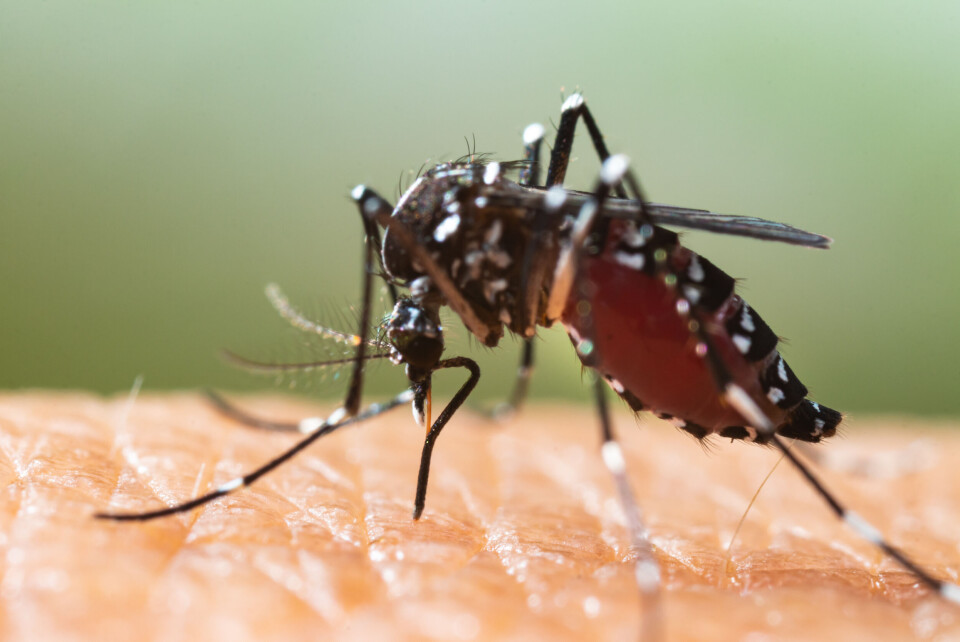-
New luxury Paris-Amalfi sleeper train service
Three-day Orient-Express trip includes hotel stays and Pompeii visit among other excursions
-
Why you can contest a speeding fine when driving to Italy from France
A new initiative has discovered that the majority of Italian speeding fines may be legally void
-
France’s Favourite Village 2026 shortlist announced
You can vote for your favourite until early March
France faces rise in mosquito-borne diseases, warn health experts
Dengue fever, Zika and chikungunya cases are expected to rise in the coming years. Climate change and travel have been blamed

France faces a rise in cases of mosquito-borne viral diseases such as dengue fever, Zika and chikungunya in the coming years.
That is the warning from a French government health risk committee.
It said the country’s overseas territories face the diseases regularly but that cases were now rising in mainland France as the tiger and the Aedes aegypti mosquitos have started to gain a foothold.
Climate change and Paris Olympics
Entomologist Didier Fontenille, one of the authors of the government health risk committee (Covars) report on the subject, said climate change and increased travel is to blame.
“Soon, tiger mosquitos will be found all over France,” he said. “While the Aedes aegypti is resistant to insecticides, which are two pieces of very bad news”.
In the summer of 2022, 65 cases of indigenous dengue fever (contracted locally and not in another country and brought back) were reported in France and the number of departments where the tiger mosquito is present has increased 10-fold since 2010.
Read More: France sees surge in indigenous dengue cases as climate warms
Mr Fontenille pointed out that the organisation of international games in France, notably the Olympics in Paris in 2024 increases the risk of dengue fever, Zika and chikungunya spreading as significant populations from all over the world come to the country.
“We were overwhelmed with 65 cases,” he said. “If next year there are 300 we will not be able to cope, we will have to adapt.”
Covars said France has an “effective” monitoring, detection and management system for these diseases but that it can be “perfected”. It pointed out that there is no “national coordination” which would mean regions could see the situation in other regions.
“We are not in a catastrophic situation, but we must take the risk seriously with prevention campaigns and better stakeholder organisation,” added Covars president Brigitte Autran.
World Health Organization issues similar warning
The French government committee report came as the World Health Organization blamed climate change for causing mosquito-borne arboviruses to spread faster and further, warning global outbreaks could be looming.
It sounded the alarm over increased cases of dengue fever, chikungunya and Zika.
It said the number of dengue fever cases had gone from half a million in 2000 to 5.2 million in 2019, the worst year on record.
Chikungunya, meanwhile, is experiencing a dramatic surge in the Americas. So far this year, around 135,000 cases have been reported, compared with around 50,000 cases in the first six months of last year.
"The mosquitos and these diseases have with climate change been increasing... by altitude and by latitude," said Rojas Alvarez, WHO's technical lead on chikungunya and Zika.
"This high transmission (in the Americas) could be an anticipation of what the next summer season in the northern hemisphere might look like.”
Related Articles
Mosquito screen reinvented by French couple after mesh misery abroad
Anti-mosquito campaign begins in south of France town after invasion
























